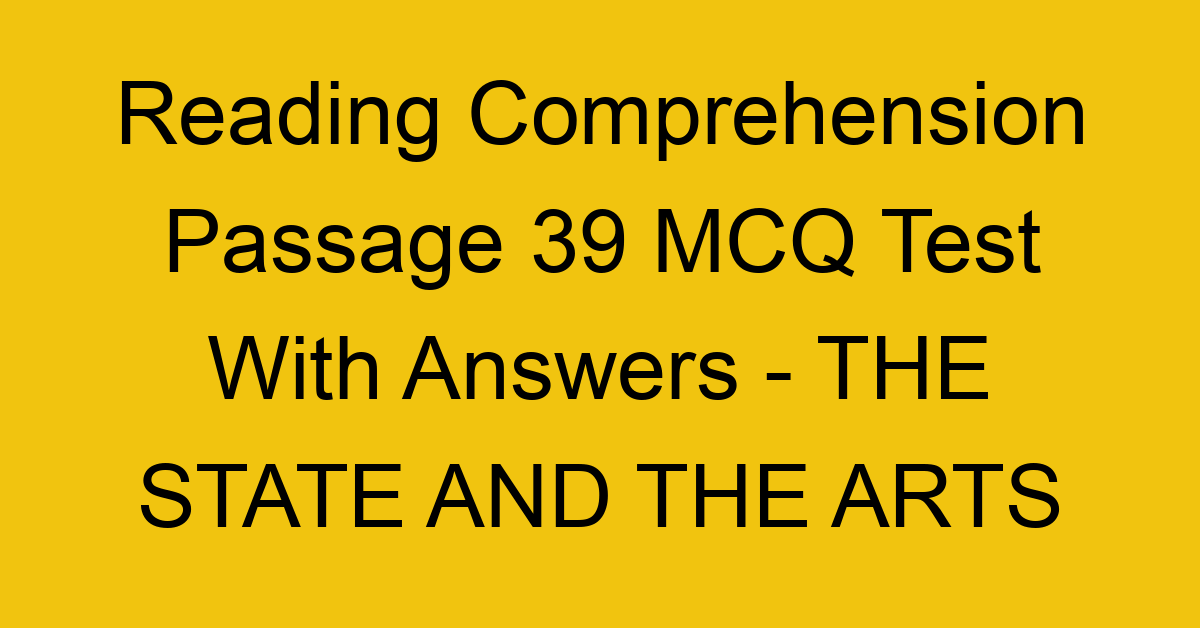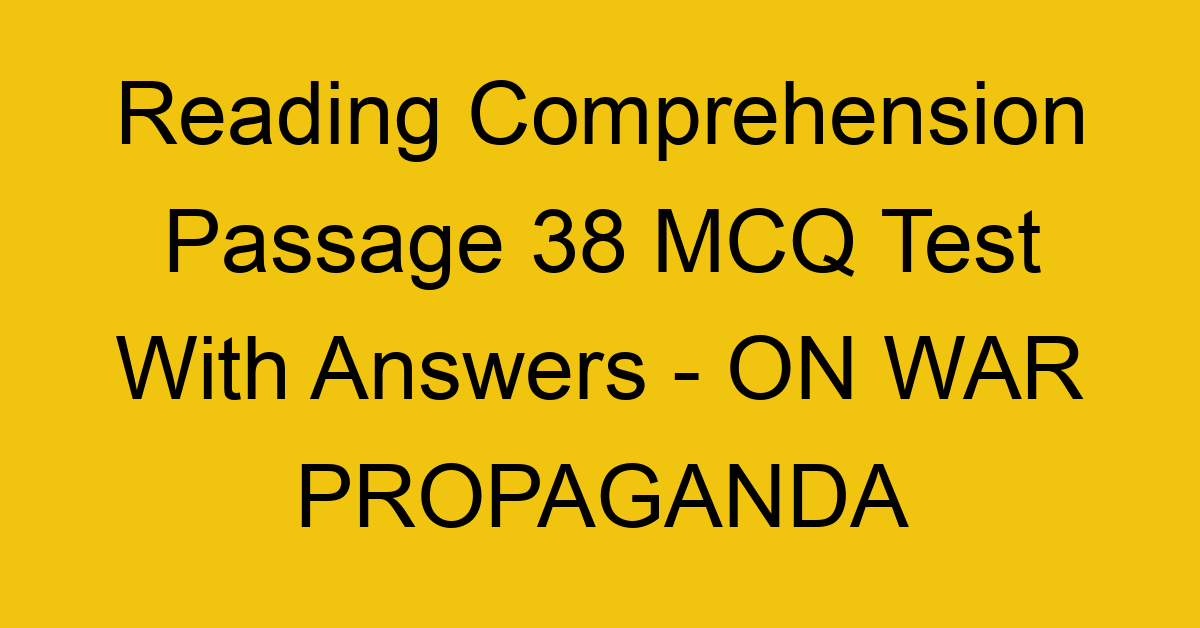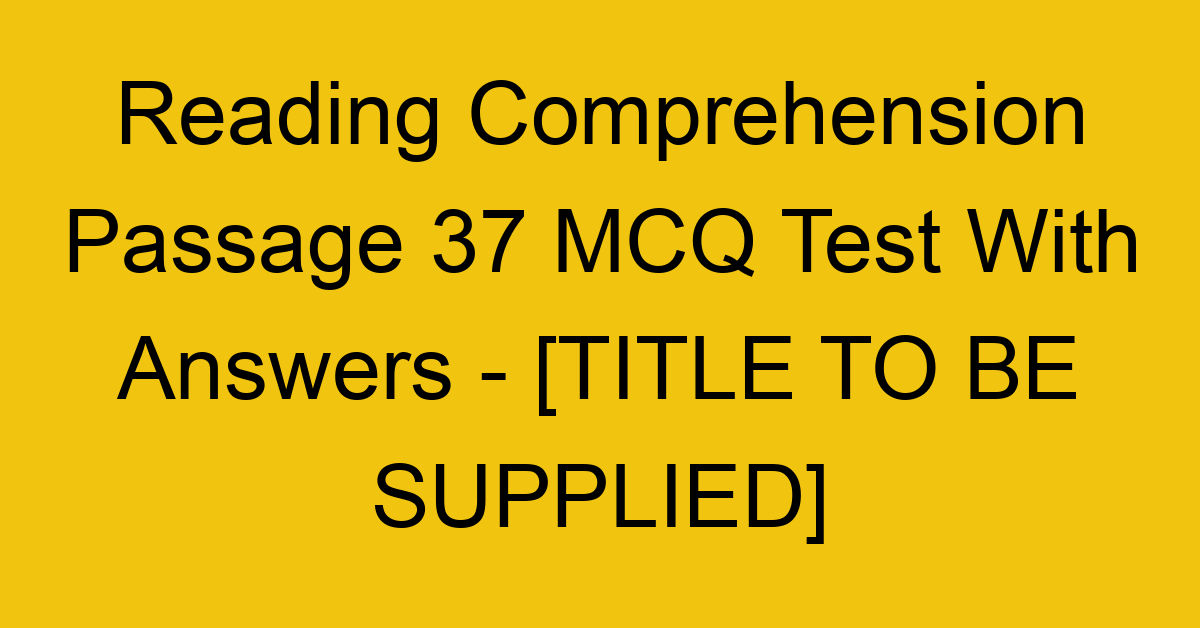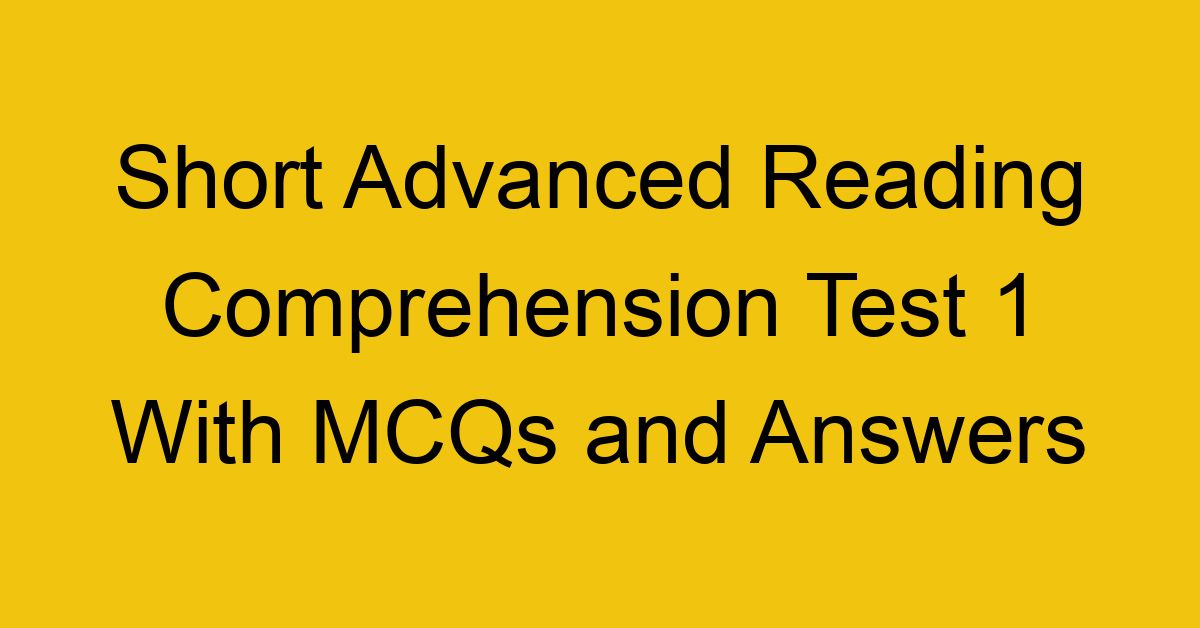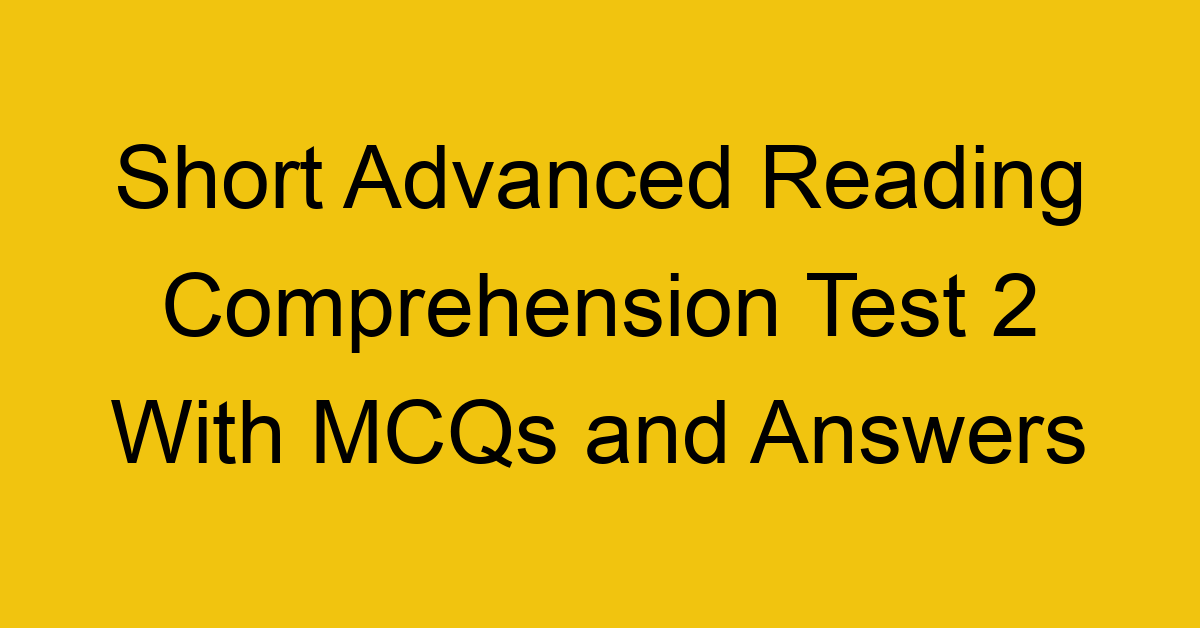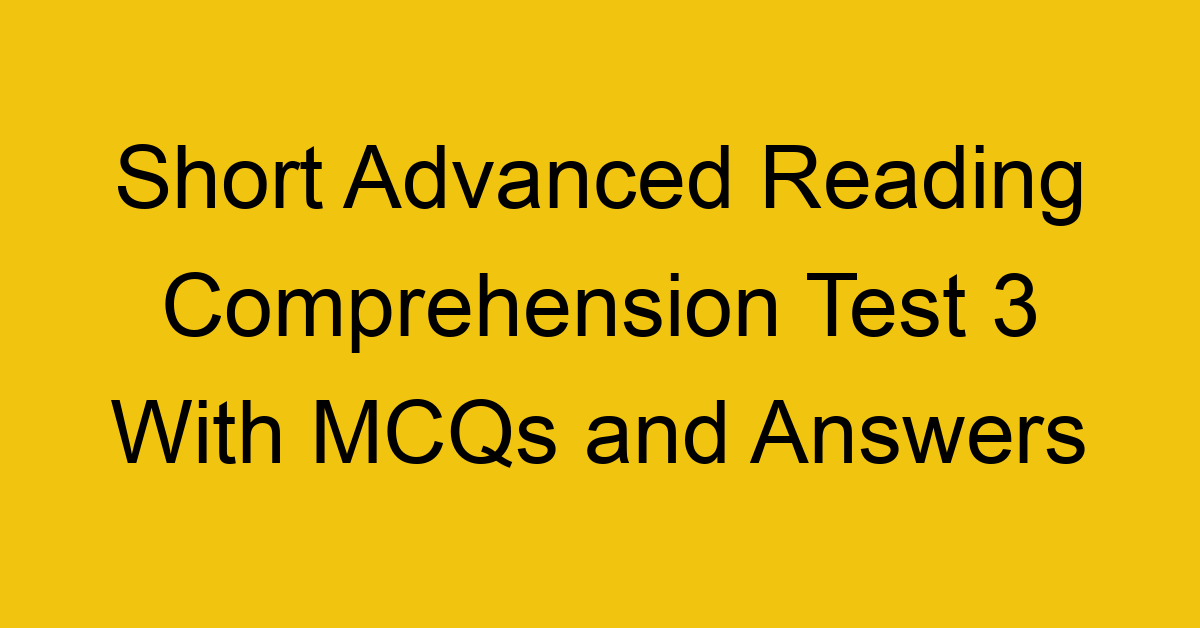Questions must be answered on the basis of what is stated or implied in the passage itself, and not on the basis of what you may know independently about the subject matter.
Reading Comprehension Passage 40 MCQ Test
Question 1 |
(Please note: The following questions are related to a specific reading passage, which is available solely before the first question. Remember, it may be helpful to refer back to the reading text while answering the questions to ensure accuracy.)
READ ON ART
I would say that the function of art is not to transmit feeling so that others may experience the same feeling. That is only the function of the crudest forms of art - "program music," melodrama, sentimental fiction and the like. The real function of art is to express feelings and transmit understanding.
That is what the Greeks had so perfectly realized and that is what, I think, Aristotle meant when he said that the purpose of drama was to purge our emotions. We come to the work of art already charged with emotional complexes; we find in the genuine work of art, not an exaltation of these emotions, but peace, repose, equanimity. Nothing is more absurd than the spectacle of an ardent young snob trying to cultivate an emotion before a great work of art, in which all the artist's emotion has been transmuted to perfect intellectual freedom.
... If this were clearly recognized, there would be no question of the status of art in society. Here again, the Greeks were wiser than we, and their belief, which always seems so paradoxical to us, that beauty is moral goodness, is really a simple truth. The only sin is ugliness, and if we believed this with all our being, all other activities of the human spirit could be left to take care of themselves. That is why I believe that art is so much more significant than either economics or philosophy. It is the direct measure of man's spiritual vision. When that vision is communal, it becomes a religion, and the vitality of art throughout the greater part of history is closely bound up with some form of religion. But gradually, as I have already pointed out, for the last two or three centuries that bond has been getting looser, and there does not seem to be any immediate promise of new contact being established.
... No one will deny the profound interrelation of artist and community. The artist depends on the community -- takes his tone, his tempo, his intensity from the society of which he is a member. But the individual character of the artist's work depends on more than these: it depends on a definite will-to-form which is a reflection of the artist's personality, and there is no significant art without this act of creative will.
Herbert READ, The Meaning Of Art.
According to Read, the function of art
A | is best exemplified by the crudest forms of art. |
B | is to make others experience the same feelings as the artist. |
C | has never been understood as well as it is understood today. |
D | was very well understood by the Greeks. |
E | is to express understanding and transmit feeling. |
Question 2 |
Aristotle
A | is a good representative of the Greek position in this matter. |
B | purged our emotions through his plays. |
C | exalted the dramatic emotions of his fellow countrymen. |
D | spent all his life trying to popularize great drama. |
E | taught his fellow countrymen the theatrical realities behind great drama. |
Question 3 |
"Beauty is moral goodness." According to Read, this proposition could really provide a working basis for
A | economics and philosophy. |
B | spiritualism. |
C | our communal life. |
D | our sins. |
E | our past history. |
Question 4 |
Read believes that there exists/exist
A | an immutable truth in artistic individualism. |
B | certain inevitable ties between art and society. |
C | financial problems associated with communal art. |
D | no room for individualism in art. |
E | still some people who confuse art with religion. |
Question 5 |
Great art makes us
A | more individualistic than we commonly are. |
B | strongly sentimental and ardently melodramatic. |
C | more patriotic. |
D | critical of the society in which we live. |
E | see and understand the human condition. |
⇦ |
List |
⇨ |
| 1 | 2 | 3 | 4 | 5 |
| End |

